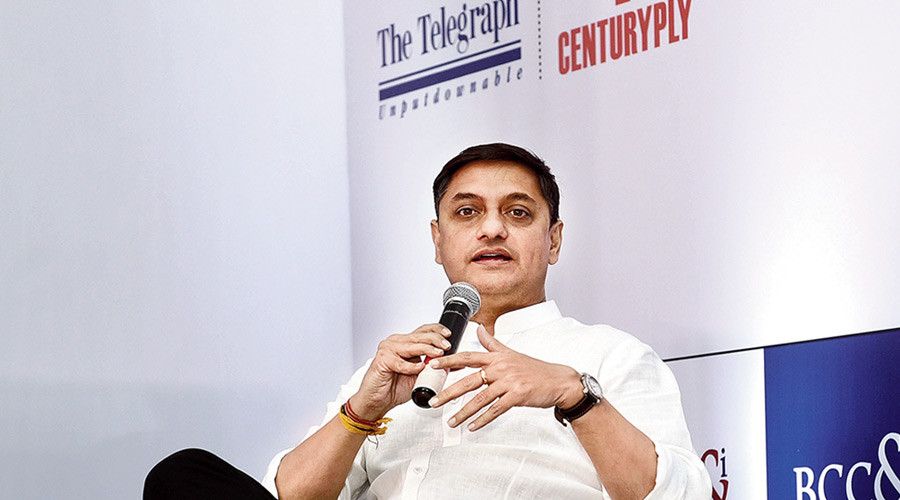Economist and author Sanjeev Sanyal on Monday said the policy-making process in a post-Covid world was set to see a major change and the experience of Indian policymakers over the past two years would play a crucial role in uncertain times.
“The post-Covid world will have its own geopolitics, its own technologies, own consumer behaviour, own institutions, own supply chains and all of these will interact with each other in unpredictable ways. There is no such thing as a new normal,” Sanyal said at The Bengal Chamber’s leadership lecture powered by Tata Steel and Exide Industries in association with The Telegraph and Centuryply.
“We have no way of knowing how the world is going to evolve in the next 10 years. The only thing that we can say is we are not going back to the pre-Covid world.”
Sanyal, a full-time member of the Economic Advisory Council to the Prime Minister, said a “Barbell strategy” of combining two opposite strategies, which was followed over the past two years, would play a role in policy-making.
“One side will create a cushion and on the other side we will have flexible responses. On the flexibility side, there will be liberalising the economy so that the private sector can unleash risk-taking and innovation. Even in the chaos of the last two years, we have been going ahead with reforms. There is also flexibility in our financial system. Despite the last two years, the banking system today is much better capitalised and better positioned than before Covid,” said Sanyal.
“The other side of the Barbell is resilience. There are random shocks as we are seeing now. In this context, Atmanirbhar Bharat will play a crucial role. It is about providing support and leveraging our indigenous capacities so that we can engage with the world. This is not running back to the shell.”
Sanyal said production-linked incentive schemes would play a major role in the expansion of certain identified industries that the policymakers and the government anticipated would grow in the coming years.
The Centre has fixed a capital outlay of Rs 1.97 lakh crore for 13 sectors, including mobile and electronic component manufacturing, pharmaceutical, specialty steel and advanced chemistry cell batteries.
The economist pointed out that while there were inflationary concerns amid the rise in oil prices, there was adequate cushion in the form of a $635 billion foreign exchange reserve, which has grown over the last two years despite the pandemic.
